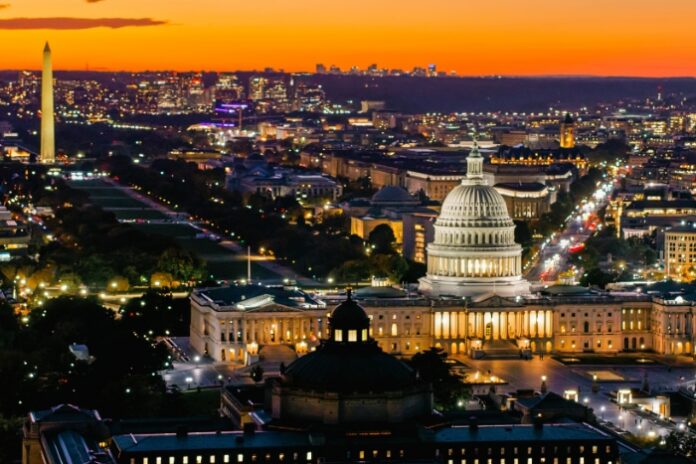Arguing Class Actions is a monthly column by Adam J. Levitt for the National Law Journal.
Reprinted with permission from the May 5, 2025 edition of the National Law Journal. © 2025 ALM Media Properties, LLC. Further duplication without permission is prohibited. All rights reserved.
Since his inauguration, President Donald Trump has issued more than 135 executive orders; many of which have been immediately challenged in court. The cases are a mix of potential class actions, individual actions, and cases brought by organizational plaintiffs on behalf of their members. Many have quickly sought nationwide preliminary injunctions to stay the challenged executive orders.
Nationwide injunctions are judicial orders enjoining the federal government from enforcing challenged laws, regulations, or policies across the United States as a whole. Unlike class actions, where broad injunctive relief is only available once a class is certified and is limited to the members of the class, courts can issue broad nationwide injunctions earlier in the case and provide relief to affected people beyond the plaintiffs in the case without having to satisfy Federal Rule of Civil Procedure 23.
Proponents of nationwide injunctions consider them a vital tool for staying alleged illegal or unconstitutional government policies and staving off potential harm until the policy can be examined by the courts. By contrast, nationwide injunction opponents consider them to be a prime example of judicial overreach that needs to be reined in or disallowed entirely, arguing that class actions, not nationwide injunctions, are the proper way to represent the rights of people affected by a challenged policy who are not in court.
On April 9, the U.S. House of Representatives passed the No Rogue Rulings Act of 2025 (H.R. 1526), which, if enacted, would restrict district courts’ authority to issue injunctions. Under H.R.1526, injunctions would be limited in scope to the parties involved in a specific case, except in the case of a certified class action. On April 10, the bill was referred to the Senate Judiciary Committee. The fate of the bill in the Senate remains uncertain.
Shortly before the House passed H.R. 1526, the Senate Judiciary Committee held hearings to discuss the various issues that opponents of nationwide injunctions have raised regarding their use, including the perceived incentive to forum shop for a sympathetic judge. Critics have expressed similar concerns regarding class actions. Yet a plaintiff, as the master of his or her complaint, has the right to choose where to bring their lawsuit. In theory, the same law should be applied the same
way by every court. In reality, however, when lawsuits challenging the same government policy are filed in several different district courts—whether they are individual actions or class actions—there’s a risk that some courts uphold the policy, while others strike it down. Given this risk of inconsistent rulings, choosing where to file a complaint is an integral and necessary part of thoughtful and zealous advocacy.
Opponents of nationwide injunctions say this type of careful forum selection creates an imbalance where the government can win every case but one, and if the plaintiff in that one case gets a nationwide injunction, the rest don’t matter, because that one judge has ruled for the whole country. This concern is tempered in a class action, however, where the scope of any injunction is limited to the certified class, and a class will only be certified if the requirements of Federal Rule of Civil Procedure 23 are met.
If nationwide injunctions are eliminated outside of the class action context, the number of class actions challenging federal policies and regulations is expected to increase. Rule 23, as currently applied, however, is a cumbersome and inefficient tool for obtaining timely relief from challenged government policies. In a typical class action, it often takes months, if not years, from the date of filing to certify a class and get the needed injunctive relief. Where the harm from an illegal or unconstitutional government policy is immediate and cannot be corrected later (e.g., mass deportations, revocation of student visas, preventing access to counsel, limiting voting rights), relief in the usual Rule 23 course—with its attendant pitfalls and delays—is too little too late.
One possible solution is making expedited class certification the norm, with case schedules and standing orders focused on completing class certification in a matter of weeks right at the beginning of the case. Where that is too long to wait, plaintiffs can file motions to provisionally certify a class at the outset of the case for purposes of seeking a preliminary injunction or a temporary restraining order. For example, in J.G.G. v. Trump, Civil Action No. 25-766 (JEB) (D.D.C.), the plaintiff filed a complaint and simultaneously moved for class certification. The court, finding exigent circumstances, held a hearing on the class certification motion that same day. At the hearing, the court provisionally certified a class of all individuals subject to the challenged executive order and enjoined the government from removing any member of the class from the United States for 14 days, or until further order of the court.
The reality, however, is that ruling so quickly is not the norm, and courts may be reluctant to fast track even provisional class certification. Class counsel will need to educate the court on the need to act swiftly and the propriety of doing so. Briefing on provisional class certification must be expedited. Courts may also be more comfortable if provisional certification of a class is solely for purposes of entering a preliminary injunction or temporary restraining order, with final class certification briefed separately and addressed later on in the case. Preliminary injunctions and temporary restraining orders “merely [] preserve the relative positions of the parties until a trial on the merits can be held and to balance the equities as the litigation moves forward.” J.G.G. v. Trump, Civil Action No. 25-766 (JEB), at *6 (D.D.C. Mar. 24, 2025) (quoting Lackey v. Stinnie, 145 S. Ct. 659, 667 (2025)). Provisional certification of a preliminary injunction class at the outset of the case protects the status quo until the legality of the challenged policy is resolved. Courts may be more willing to consider provisional certification of a preliminary injunction class once they understand the purpose and limited nature of the provisional class certification request.
Injunctive-relief-only classes are generally certified under Rule 23(b)(2), where “the party opposing the class has acted or refused to act on grounds that apply generally to the class, so that final injunctive relief … is appropriate respecting the class as a whole.” Fed. R. Civ. P. 23(b)(2). This standard will be more difficult to meet and requires greater contravening evidence from the plaintiff, particularly if the government denies that a challenged action is part of a broad policy, as it initially did during Trump’s first term, in a class action that challenged family separations at the U.S. southern border.
Significantly, class actions also sometimes fall short as a vehicle for injunctions because relief is limited to the certified class. A policy may be so broad or so piecemeal that any one plaintiff simply is not representative of the entire group of people affected by the policy, making any class that could be certified underinclusive. Additional subclasses may or may not be able to bridge the gap.
If Rule 23 proves too limited a substitute for today’s nationwide injunctions, then another option is for Congress to expand the availability of class actions, particularly when seeking injunctive relief. As the debate over nationwide injunctions continues to play out, class action attorneys should continue to explore what role they can play to protect vulnerable populations against government overreach.
Adam J. Levitt is a founding partner of DiCello Levitt, where he heads the firm’s class action and public client practice groups. He can be reached at alevitt@dicellolevitt.com.
Thank you to DiCello Levitt partner Nada Djordjevic for contributing to this column.

